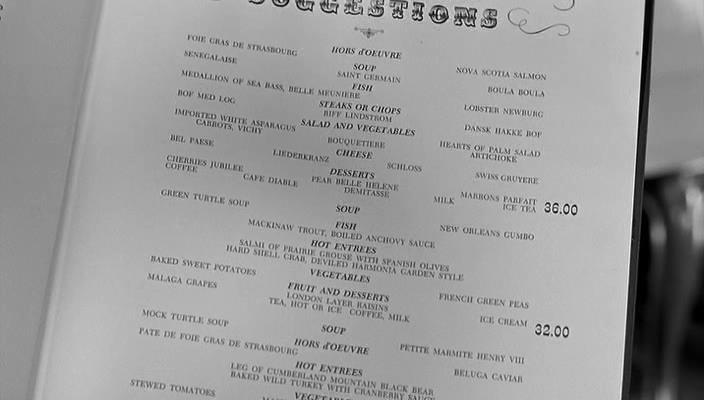The Rainmaker
The play has evidently served in its original aspect as the
basis of the scenic representation, around it are several degrees of realism
and the complicated lighting system. The décors are richly expressive and
co-equal with the lighting, which is a variant of Hollywood lighting for color
cinematography to create a measured playing space in the house interior and set
off the barnyard exterior night outside, a painstakingly accurate effect.
Crowther derided the production as in any event a thing of
“rubes”, Gotham sophistication thus overlooked the Baudelairean theme, fine
construction and supreme genius of the piece as much too good for it.
Anthony labored hard to make such a fascinating masterpiece, but
the theme was worth it.
The story is told in the prologue, a “tornado rod” free to the
girl, two bits to the first gent, fifty cents the next and so on.
The
Matchmaker

The theme of perfect harmony is already expressed between the
cinematography and the direction, the actors and the settings, before the
script has a chance to work, that makes one of the marvels of the cinema from
the start.
Mrs. Dolly Levi, “born Gallagher”, of New York, “arranging
domestic affairs” in Yonkers, widow of Ephraim.
According to A.H. Weiler
of the New York Times, “cute and
irreverent... silly situations... never serious, a pleasurable experience” for
all that.
Variety praised the
“superb... bright... immense” cast “in this yarn of 1884.”
The Catholic News Service Media Review
Office, “stagy... winning... sweetly good-humored.”
Malachi Stack, “an apprentice at your age?” Vandergelder surveys
the scene, “the world is getting crazier every minute, Joe. Like my father used
to say, horses will be taking over
the world soon,” that is to say, The World Turned Upside Down. He is quite mad, the characters famously take the spectators into their
confidence, so you know.
Welles is the preponderating influence, visibly, Miss Ernestina
Simple the bride-to-be (“for the turning away of the simple shall slay them,
and the prosperity of fools shall destroy them”), Lubitsch, too, has a share in
the provenance, and no sooner does Ernst seem to figure than The Italian Straw Hat (dir. René Clair)
appears.
“A double life, that’s all... the famous
Cornelius Hackl.”
The Harmonia
Gardens. “Don’t you boys forget, you made us lose our reputations and
now the fashionable world is the only place we can eat.”
Kelly films all this in color for Hello, Dolly!.
“Mrs. Levi, I’m a neighborhood merchant, not a Roman emperor!”
Halliwell’s Film
Guide,
“cold and lifeless”, citing Peter John Dyer of Sight and Sound on “the general lack of pace,
lightness and dimension”.
Career
The liberator of Paris and defender of South Korea goes upon the Broadway stage at length, and there is a tale
of hardship and bitterness to rival them all, nothing left of him but the
actor, the shell all burned away.
Rouse’s The Oscar and
Robert’s Salut l’artiste
have different views of the action, Griffith’s Edgar Allan Poe is the short version.
“Lacks punch” (Time Out).
“Well played”, says Halliwell’s
Film Guide, “but slow and indeterminate.”
All In A Night’s Work
A very complicated differential equation finally bringing
together the New York magazine publisher and that girl way down below, victim
or blackmailer on the bargaining committee.
Anthony permits his technique to be all but entirely obscured,
in keeping with the title.
Tomorrow
There was a man once in Appalachia, schoolchildren went to visit
him and some other mountain folk for a class project around the time this film
was made in Mississippi, he lived much as these folks do, and he kept three
prized possessions, a Bible, a volume of Browning, and a banjo.
He would understand this film, because of “The Ring and the
Book” and “Apparent Failure”, it would seem plain as day to him, if for no
other reason.
Canby the Manhattanite thought it “patronizing”.